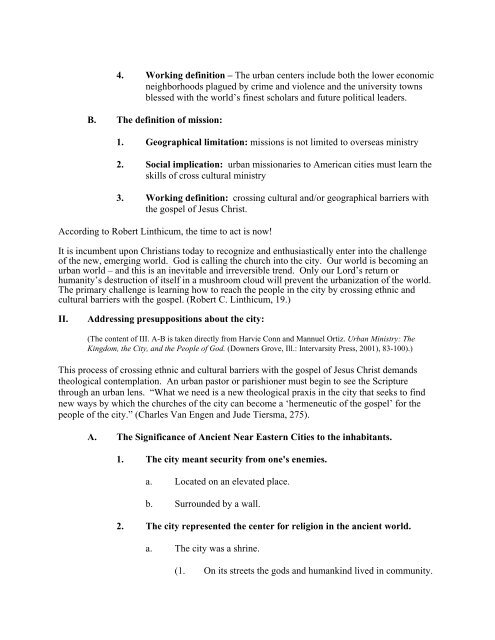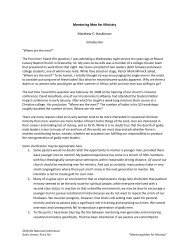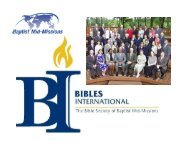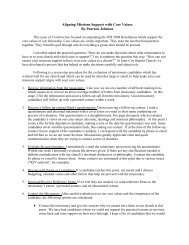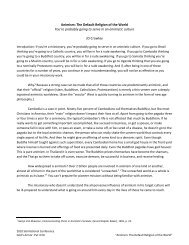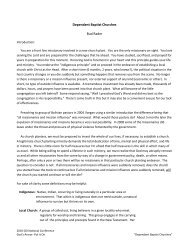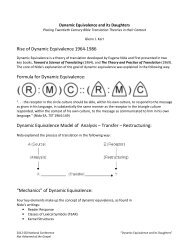Session 1: Why Urban Ministry - Missions Mandate
Session 1: Why Urban Ministry - Missions Mandate
Session 1: Why Urban Ministry - Missions Mandate
Create successful ePaper yourself
Turn your PDF publications into a flip-book with our unique Google optimized e-Paper software.
4. Working definition – The urban centers include both the lower economic<br />
neighborhoods plagued by crime and violence and the university towns<br />
blessed with the world’s finest scholars and future political leaders.<br />
B. The definition of mission:<br />
1. Geographical limitation: missions is not limited to overseas ministry<br />
2. Social implication: urban missionaries to American cities must learn the<br />
skills of cross cultural ministry<br />
3. Working definition: crossing cultural and/or geographical barriers with<br />
the gospel of Jesus Christ.<br />
According to Robert Linthicum, the time to act is now!<br />
It is incumbent upon Christians today to recognize and enthusiastically enter into the challenge<br />
of the new, emerging world. God is calling the church into the city. Our world is becoming an<br />
urban world – and this is an inevitable and irreversible trend. Only our Lord’s return or<br />
humanity’s destruction of itself in a mushroom cloud will prevent the urbanization of the world.<br />
The primary challenge is learning how to reach the people in the city by crossing ethnic and<br />
cultural barriers with the gospel. (Robert C. Linthicum, 19.)<br />
II. Addressing presuppositions about the city:<br />
(The content of III. A-B is taken directly from Harvie Conn and Mannuel Ortiz. <strong>Urban</strong> <strong>Ministry</strong>: The<br />
Kingdom, the City, and the People of God. (Downers Grove, Ill.: Intervarsity Press, 2001), 83-100).)<br />
This process of crossing ethnic and cultural barriers with the gospel of Jesus Christ demands<br />
theological contemplation. An urban pastor or parishioner must begin to see the Scripture<br />
through an urban lens. “What we need is a new theological praxis in the city that seeks to find<br />
new ways by which the churches of the city can become a ‘hermeneutic of the gospel’ for the<br />
people of the city.” (Charles Van Engen and Jude Tiersma, 275).<br />
A. The Significance of Ancient Near Eastern Cities to the inhabitants.<br />
1. The city meant security from one's enemies.<br />
a. Located on an elevated place.<br />
b. Surrounded by a wall.<br />
2. The city represented the center for religion in the ancient world.<br />
a. The city was a shrine.<br />
(1. On its streets the gods and humankind lived in community.


